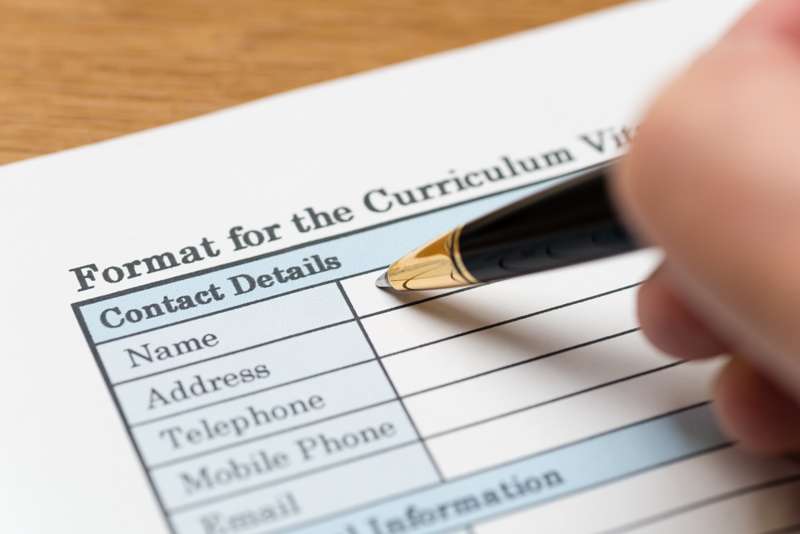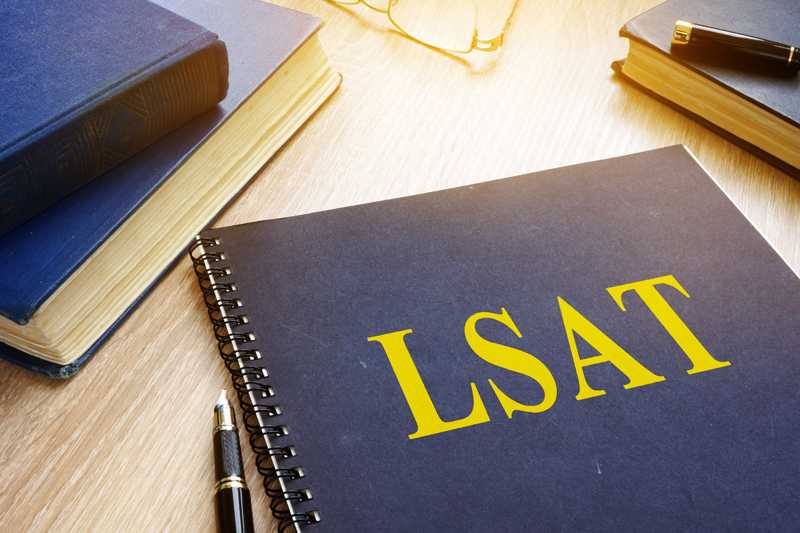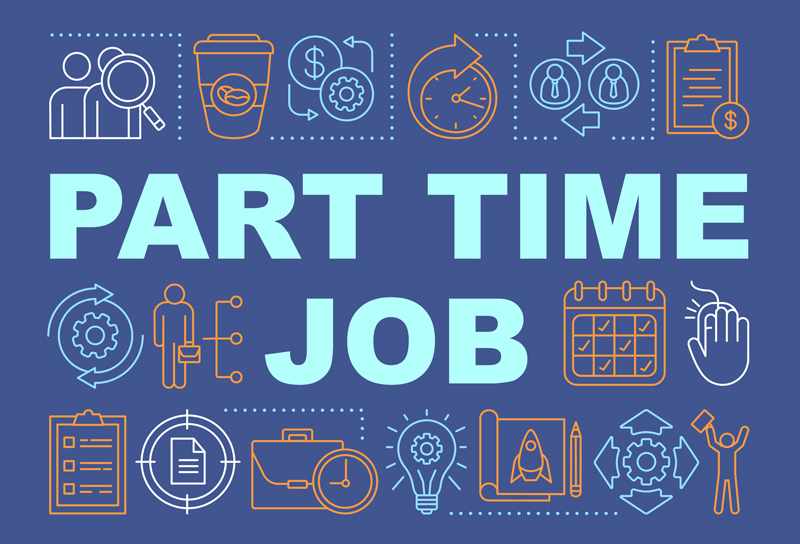
Even though each resume will be different based on education, experience, industry, and position, you should include some key sections while resume writing. This guide will explain what to include on a resume for a job application. It might be helpful to look at resume templates in your position or industry to get ideas on what to have.
Like everyone’s career journey, no resume is built the same way. You can use an online resume builder to learn the different resume formats, view resume samples, choose the right resume template for your dream job, figure out how to create a resume that is ATS friendly, and how a resume can appeal to hiring managers or recruiters.
Here are the top 10 tips received from employers on the simple steps to creating a good resume:
1. Should I include my permanent address on my professional resume?
There are two reasons why you should have your permanent address on your resume in addition to your current address. First, if you are applying for jobs in or near your home state, and your connection to that area is not already apparent on your resume, you should include your permanent address to demonstrate that connection.

Second, if you will be traveling away from your home and recently sent out applications to employers, and you do not have a method for accessing your phone messages, you need to let potential employers know how to reach you. If they can contact you through your permanent address, including that information on your resume and cover letter is helpful.
If you include your permanent address on your resume, potential employers will know that you are not from where you are working. This may not be to your benefit if you are from the Midwest, for example, and seeking jobs in New York City.
2. Should I play the numbers game and include my undergraduate GPA and LSAT scores?

The bottom line is that your resume is your sales tool. Do your GPA and LSAT scores help you to sell yourself to an employer? If the numbers are outstanding, then you may wish to include them. If they are not exceptional, you should probably leave them off.
3. Should I list ALL of my undergraduate activities? If not, how do I decide? Is it different for sports, academic activities, and service?

Generally speaking, you should not list all of your undergraduate activities. Instead, select those activities that best exemplify your skills and interests and the skills and interests that the potential employer will find useful. Ask yourself these questions: which activities were most important to you in college? Which activities took up most of your time? Were some of the activities "legal" in nature? (i.e., Student Judiciary Board). Narrow your list of activities by selecting only one of several activities of the same genre. For example, if you sang in three different glee clubs, do not list all three. The employer understands your interest in singing if you list just one. Include activities that demonstrate qualities that the employer generally seeks: leadership, speaking and writing ability, teamwork for students applying for public service positions, including all of your service-related activities to demonstrate your commitment to public interest work. Concerning social activities, please do not overdo them. Feel free to note that you were president of your fraternity, but do not list every other fraternal position you held.
Students often have concerns about including certain activities or experiences on their resumes that reflect an affiliation with a particular political, ethnic, gender, or similar organization type. Because the answer to this question will vary depending on the type of employer and the type of organization, this question is best addressed in an individual counseling appointment. Your affiliation with specific organizations may help your ability to secure an interview or job with certain employers and hinder your chances with other employers. Therefore, it is wise for you to think about this issue and talk it over with a counselor before sending out your resume.
4. Should I explain awards?

Yes. It does not help the employer know the award's name without knowing why you won it. So, if the award title does not explain the award sufficiently, include a very brief description, i.e., "Tommy T. Tomilio Award recipient for best senior paper in history."
5. Can any of my high school stuff stay on?

Generally, no. However, there may be a couple of reasons to leave your high school information. First, there is the "snob appeal factor." If you attended a prestigious high school and are applying to employers you know to have connections to that high school, you may wish to include it on your resume to flag this. Second, for students applying for public sector positions, public sector employers are interested in your commitment to public interest work and maybe curious to see what you have done as far back as high school. However, it may be redundant if you have numerous other examples of your public service work throughout college and after, including those high school information.
6. Is it better to list an unimpressive, non-legal summer or short-term job or show a gap?

It is probably better to show a gap. You should be aware that employers are often curious about gaps in time on a resume, especially if those gaps are greater than one year in duration. Not including a summer job because you were a waitress. Instead, incorporating a previous summer job where you worked as an intern for a senator or as a court clerk is a good decision. The short gap in time will not raise eyebrows with an employer. You may wish to use a summary line on your resume such as, "Various jobs as a sales clerk, waitress, and receptionist while in college."
7. What if I do not have ANY legal experience?

Do not worry. Many law students do not have any legal experience, especially during their first year of law school. Employers are not looking for law students with impressive pre-law school legal experience. They are looking for students with common sense and intellectual ability. Think about what experiences you have – are you currently involved in a clinic at the law school? It may be a good idea to list that in your experience section instead of the education section and then describe the work you were involved in. Concerning the job experiences that you have had, did you develop leadership skills? Analytical ability? Speaking ability? If so, be sure your descriptions reflect that information.
8. How much of a description should I give for my jobs?

You should provide enough description so that the potential employer learns about what projects you worked on and what skills you developed. A one-sentence description of the work or the mention of the job title is not good enough. Do not assume that everyone will know what you did because you were a summer associate at a law firm or an intern with a legal services organization. Students are given very different levels of responsibility and projects during the summer, frequently based on the employer's perception of their ability. Be sure you take the opportunity to highlight your achievements.
9. What is with the "Skills and Interests" section? Since I am not fluent in three languages, who cares?

Maybe no one. But employers seem to use this section as an icebreaker during interviews. It provides them with some simple way to get the conversation flowing casually. "Oh, so I see you have performed ballet. What do you enjoy about ballet?" This is by no means a mandatory section on a resume, and you should feel free to leave it off. However, if you have interests or skills that are not already reflected in your application, and you would enjoy discussing them during an interview, or if you think the skill would be helpful to the employer (i.e., a particular language fluency), then you may wish to include this section on your resume. An additional reason to have interests on your resume is to humanize you. Many resumes sound very intellectual and serious. It may be nice to let potential employers know that you also have a "fun" side.
10. When is a two-page resume okay?

A two-page resume is acceptable when you have relevant, non-redundant information that will help you sell yourself to an employer. Listing 20 publications in a "Publications" section of your resume, when they all relate to research on molecular biology you conducted in college, is probably not relevant and is redundant. However, your resume should include significant prior work experience relevant to the employer's work to whom you are writing. First-year law students typically do not need a two-page resume. Before entering law school, third-year students with professional experience may need to use two pages. Start your resume by including everything you think is worth having, and then run it by a resume counselor for input.
Conclusion
Your resume and cover letter are a must to be considered for a position. A hiring manager will see your resume, so you need to convey your qualifications accurately and persuasively.
An employer should quickly digest your skills, employment history, education background, and accomplishments on your resume. Using this information, they can decide whether or not to interview or hire you.
However, writing a resume from scratch can be time-consuming. Use an online resume builder to simplify the process. Enter your information, and the software will create a perfectly formatted resume that will impress hiring managers.


